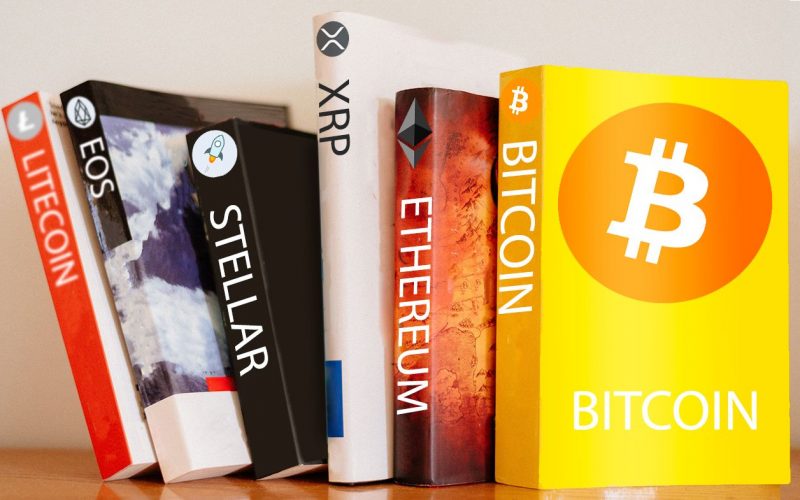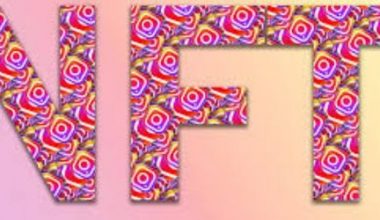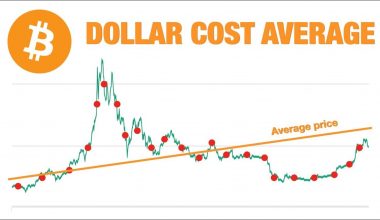Cryptography is a constantly changing field, with new information appearing all the time. Today, we’ll look at some of the best cryptocurrency books to help you better grasp the industry, develop your wealth, or simply broaden your knowledge. You’ve come to the right place if you’re seeking the greatest bitcoin books. These crypto books can be used to increase your wealth, learn to trade, broaden your knowledge, and much more. We’ve prioritized the top cryptocurrency books, presuming that most readers are interested in learning more about the history and theory of bitcoin. But we’ve also included books on cryptocurrency trading, money theory (as it relates to crypto), and much more.
What Is Cryptocurrency?
A cryptocurrency is a digital or virtual currency that is protected by encryption, making counterfeiting and double-spending practically impossible. Many cryptocurrencies are built on blockchain technology, which is a distributed ledger enforced by a distributed network of computers. Cryptocurrencies are distinguished by the fact that they are not issued by any central authority, making them potentially impervious to government intervention or manipulation.
Cryptocurrencies are online payment systems that are denominated in virtual “tokens” that are represented by ledger entries on the system’s internal ledger. Various encryption methods and cryptographic approaches, such as elliptical curve encryption, public-private key pairs, and hashing functions, are referred to as “crypto.”
Best books on cryptocurrency
Let’s jump in and look at the best cryptocurrency books out there.
#1. The Bitcoin Standard
“When a pseudonymous programmer offered “a revolutionary electronic cash system that’s totally peer-to-peer, with no trusted third party” to a small internet mailing list in 2008, very few paid attention.
Despite all odds, this upstart autonomous decentralized software now provides an unstoppable and globally-accessible hard money alternative to current central banks ten years later.
The Bitcoin Standard examines the historical context of Bitcoin’s rise, the economic qualities that have aided its rapid growth, and the likely economic, political, and social repercussions.
While Bitcoin is a digital-age innovation, the problem it aims to solve is as old as human society: transferring value across time and space.
From early systems of exchanging limestones and seashells to metals, coins, the gold standard, and modern government debt, Ammous takes the reader on an entertaining trip through the history of technology that executes the functions of money.
Exploring what gave these technologies their monetary role, and how they lost it, gives the reader a good idea of what makes for sound money, and sets the stage for a discussion of its economic implications for individual and societal future orientation, capital accumulation, trade, peace, culture, and art.
Compellingly, Ammous argues that it is no coincidence that the loftiest achievements of humanity have come in societies enjoying the blessings of sound monetary systems, nor is it fortuitous that monetary collapse has frequently accompanied civilizational collapse.”
#2. Digital Gold
“Bitcoin, the world’s first digital currency and financial technology, has sparked a global social movement with utopian goals.
The idea of a new currency that is maintained by the computers of users all over the world has been ridiculed, but that hasn’t stopped it from blossoming into a billion-dollar technology backed by legions of fans who see it as the most important new idea since the Internet’s inception.
Believers in a financial system free of banks and governments, as well as a new global currency for the digital era, may be found from Beijing to Buenos Aires.
Digital Gold tells the story of the colorful characters who helped build Bitcoin, including a Finnish college student, an Argentinian millionaire, a Chinese entrepreneur, Tyler, and Cameron Winklevoss, Satoshi Nakamoto, the enigmatic creator of Bitcoin, and Ross Ulbricht, the founder of the Silk Road online drug market.
New York Times reporter Nathaniel Popper provides a clever and engrossing overview of this new technology in Digital Gold.
Bitcoin has presented one of the most fascinating tests of how money works, who benefits from it, and what it might look like in the future at every step of the way.”
#3. The Internet of Money
“While numerous publications describe how bitcoin works, The Internet of Money dives further into why bitcoin works.
Andreas M. Antonopoulos, a renowned information-security expert, and author of Mastering Bitcoin discusses and contextualizes the significance of bitcoin in a series of essays spanning the exciting evolution of this technology.
Bitcoin, a technological innovation that was secretly introduced to the world in 2008, is revolutionizing far more than finance. Bitcoin is upending traditional industries and bringing financial independence to billions of people all over the world.
Andreas demonstrates why bitcoin is a financial and technological progression with considerably more potential than the moniker “digital currency” in this book.
Andreas goes beyond just explaining how the bitcoin network works to elucidate its philosophical, social, and historical ramifications.
Bitcoin – the internet of money is fundamentally changing our approach to solving social, political, and economic problems through decentralized technology, just as the internet has essentially transformed how people around the world interact and has permanently impacted our lives in ways we never could have imagined.”
#4. The Internet of Money: Volume 2
“The Internet of Money Volume Two is the magnificent sequel to Andreas M. Antonopoulos’ cult masterpiece and the bestseller The Internet of Money Volume One. The second volume includes 11 of his most uplifting and thought-provoking presentations.
Andreas M. Antonopoulos began publicly speaking about bitcoin in 2013 and soon rose to become one of the industry’s most sought-after speakers.
To date, he has given over 75 TED-style speeches in locations ranging from the Henry Ford Museum to sold-out Bitcoin Meetups in the Czech Republic and New Zealand, and each one is unique.
Antonopoulos steps onto the stage and gives a live, unscripted discussion during these performances. Without a deck in sight, he shares his most recent thoughts into bitcoin’s lightning-fast fluctuations.
Antonopoulos brings an up-to-date understanding of bitcoin to live audiences across the world by combining the knowledge of one of the world’s leading blockchain technologists with cultural context, comedy, and the flare of a performance artist.”
#5. Mastering Bitcoin
“Would you like to be a part of the financial industry’s technological revolution?” Mastering Bitcoin is your guide through the ostensibly complex world of bitcoin, equipping you with the necessary information to take part in the internet of money.
This practical book is essential reading whether you’re designing the next killer app, investing in a business, or simply interested in technology.
Bitcoin, the first successful decentralized digital currency, is still in its early stages, yet it has already generated a multibillion-dollar worldwide economy.
Anyone with the knowledge and desire to join can participate in this economy. Mastering Bitcoin will teach you all you need to know about Bitcoin (passion not included).
The following items are included in this book:
- A broad introduction to bitcoin is ideal for non-technical users, investors, and business executives.
- An explanation of the technical foundations of bitcoin and cryptographic currencies for developers, engineers, and software and systems architects.
- Details of the bitcoin decentralized network, peer-to-peer architecture, transaction lifecycle, and security principles.
- Offshoots of the bitcoin and blockchain inventions, including alternative chains, currencies, and applications.
- User stories, analogies, examples, and code snippets illustrating key technical concepts.”
#6. Mastering Ethereum
“Ethereum is the first step toward a global, decentralized computing paradigm.” This platform allows you to create decentralized applications (DApps) and smart contracts with no single point of failure or control, as well as integrate with a payment network and run on an open blockchain.
Andreas M. Antonopoulos and Gavin Wood explain everything you need to know about creating smart contracts and DApps on Ethereum and other virtual-machine blockchains with this practical book.
Learn why IBM, Microsoft, NASDAQ, and a slew of other businesses are experimenting with Ethereum. This vital guide will teach you how to gain the abilities you’ll need to be a leader in this burgeoning and exciting new industry.
- Run an Ethereum client, create and transmit basic transactions, and program smart contracts.
- Learn the essentials of public-key cryptography, hashes, and digital signatures.
- Understand how “wallets” hold digital keys that control funds and smart contracts.
- Interact with Ethereum clients programmatically using JavaScript libraries and Remote Procedure Call interfaces.
- Learn security best practices, design patterns, and anti-patterns with real-world examples.
- Create tokens that represent assets, shares, votes, or access control rights.
- Build decentralized applications using multiple peer-to-peer (P2P) components.”
#6. Cryptoassets: The Innovative Investor’s Guide to Bitcoin and Beyond
“From two cutting-edge professionals comes a unique investor’s introduction to an altogether new asset class.”
Investors can take advantage of the greatest investment opportunity since the Internet, thanks to the emergence of bitcoin and blockchain technology.
Although Bitcoin was the first crypto asset, there are now over 800, including Ethereum, Ripple, Litecoin, Monero, and others.
This easy-to-understand guide from two industry insiders explains how to navigate the dangerous new blockchain world and how to invest in these developing assets to ensure your financial future.
Cryptoassets gives you all the tools you need:
- An actionable framework for investigating and valuing cryptoassets.
- Portfolio management techniques to maximize returns while managing risk.
- Historical context and tips to navigate inevitable bubbles and manias.
- Practical guides to exchanges, wallets, capital market vehicles, and ICOs.
- Predictions on how blockchain technology may disrupt current portfolios.
This authoritative book will help you comprehend how these assets were developed, how they work, and how they are evolving amid the blockchain revolution, in addition to providing smart investment suggestions.
The authors create a clear and unique crypto-asset taxonomy that includes cryptocurrencies, crypto commodities, and crypto tokens, as well as insights into how each subgroup blends technology and markets.
You can invest in these assets in a variety of ways, including global exchanges that trade 24 hours a day, or initial crypto asset offerings (ICOs).
The book will provide you with a complete grasp of the crypto-asset ecosystem and the opportunities that await the inventive investor by elaborating on the themes of each previous chapter.
Crypto assets are the currency and market of the future. This book serves as a roadmap to the future.”
#7. The Age Of Cryptocurrency
“Bitcoin became a household name in an instant. It crops up in headlines and drives unending media debate as a cyber-enigma with a devoted following.
It appears that you may use it to buy anything from coffee to vehicles, but few people seem to know what it is. This begs the question: why should anyone be interested in bitcoin?
Wall Street writers Paul Vigna and Michael J. Casey provide the authoritative answer to this topic in their book The Age of Cryptocurrency.
Cybermoney is on the verge of launching a revolution, one that has the potential to reshape old financial and social systems while also integrating billions of “unbanked” people into a new global economy.
Cryptocurrency presents the promise of a financial system without a middleman, one that is owned by the people who use it and immune to the devastation of a catastrophe like the one that occurred in 2008.
However, bitcoin, the most well-known of the cybermonies, has a reputation for instability, extreme fluctuation, and illicit trade; critics think it has the potential to remove employment and upend the nation-state model. Above all, it suggests massive and far-reaching change–for better or worse. But it’s here to stay, and you’d be foolish to ignore it.
Vigna and Casey deconstruct bitcoin, explaining where it came from, how it works, and what you need to know to navigate the cyber-economy. The world of digital currency will be significantly different from the world of paper currency; The Age of Cryptocurrency will educate you on how to prepare.”
#8. Cryptocurrency – A Trader’s Handbook
“As of December 2017, Cryptocurrencies have the ability to divide society into two groups: those who trust in the technology and those who believe it is a bubble.”
Which side has the upper hand? Is there anything that could show one way or the other?
Cryptocurrencies are the world’s largest wealth transfer, and they’re only now gaining traction.
People are still unsure what blockchain is, and even fewer are aware of its potential. Isn’t now the ideal moment to find out more about it?
This book is split into two sections. The first will teach you all you need to know about Bitcoin and how it works. Unlike many other books on the market, we concentrate on the economic aspects as well. You will learn the following things from this book:
- How cryptocurrencies work.
- How cryptocurrencies can be used within the economy.
- Fundamental analysis, how do I conduct it?
- How to conduct technical analysis.
- How to invest confidently and successfully.
- and more!
It makes no difference if you are completely new to Cryptocurrencies or have some prior knowledge of the subject. We want to make it simple for anyone to get by sharing our knowledge in the most practical way possible. So, are you going to be on the sidelines or are you going to be a part of the revolution?”
#9. The Truth Machine
“From the authors of The Age of Cryptocurrency, Michael J. Casey and Paul Vigna come the authoritative work on the Internet’s Next Big Thing: Blockchain.
Big banks have become more powerful and entrenched. Only until the next attack does privacy exist. Credit card fraud is an unfortunate reality. Many “legacy systems” that were previously created to make our lives easier and our economy more efficient are no longer adequate.
However, there is a way out of all of this–a new type of operating system blockchain that has the potential to change large swaths of our economy.
Michael J. Casey and Paul Vigna discuss how the blockchain can restore personal ownership over our data, assets, and identities, offer billions of people access to the global economy, and shift the power balance to restore society’s faith in itself in their book The Truth Machine.
They indicate the potential for upheaval in industries such as finance, technology, legal, and shipping.
Casey and Vigna show the difficulty of replacing trusted (and not-so-trusted) institutions with a new approach that bypasses them, which we’ve relied on for millennia.
The Truth Machine demonstrates the potential for empowerment when self-interested middlemen give way to the blockchain’s transparency, while also exposing the job losses, the assertion of special interests, and the threat to social cohesion that this transformation will bring.
Casey and Vigna illustrate why we all ought to care about the course that blockchain technology takes–moving society forward, not backward–with the same balanced viewpoint they brought to The Age of Cryptocurrency.”
#10. Bitcoin: The Future of Money?
“A mysterious computer programmer named Satoshi Nakamoto registered the website ‘bitcoin.org’ following the 2008 economic crisis. Electronic currency is a new type of money that has emerged.
Is Bitcoin capable of revolutionizing the way the world conducts financial transactions? Is it merely a transitory trend, or possibly a significant con?
MoneyWeek’s Dominic Frisby explores the contentious new currency and how it came to be in Bitcoin: The Future of Money? interviewing some of the major participants in its development and shedding light on its peculiar and obscure roots, including the much-debated identity of Nakamoto himself.
In this indispensable primer to one of our time’s most contentious developments, economic theory meets whodunnit mystery.”
#11. Blockchain Revolution
“Blockchain technology is the engine that will drive our future.” It’s too crucial to ignore as the technology powering cryptocurrencies like bitcoin, open software platforms like Ethereum, and innovative firms like Ripple.
Don Tapscott, the bestselling author of Wikinomics, and his son, blockchain expert Alex Tapscott, have written a superbly researched, extremely readable, and vital book about the technology that is driving the economy’s future.
By keeping a tamperproof public ledger of value, Blockchain is an ingeniously simple, revolutionary protocol that allows transactions to be both anonymous and secure.
Though it’s best for powering Bitcoin and other digital currencies, it has the ability to record nearly everything of value to humanity, from birth and death certificates to insurance claims, land titles, and even votes.
If you’re an artist hoping to make a living from your work, a consumer wanting to know where their hamburger meat comes from, an immigrant weary of paying high fees to send money home to family, or an entrepreneur searching for a new platform to start a business, you need to know about blockchain. Those are only a few of the many examples available.
Blockchain technology, like previous significant paradigm shifts, will produce winners and losers. This book illuminates where it might lead us in the coming decade and beyond.”
#12. Cryptocurrency: What The World’s Best Blockchain Investors Know – That You Don’t
“How come some people in the bitcoin market virtually always make money?” Bitcoin prices have undoubtedly dropped by more than 50% since the beginning of the year. You believe that the market’s finest days are behind it. Furthermore, there is no more money to be made in cryptocurrency.
Reconsider your position. As you can see, cryptocurrency has been around for a while. The stock market has experienced large losses in a short period of time.
However, what most people don’t realize is that these losses are invariably followed by even bigger profits. Because cryptocurrency is now more widely accepted than it has ever been.”
#13. Cryptocurrency Beginners Bible
“Learn how to profit from cryptocurrencies, even if you’re a complete beginner.”
Between 2010 and 2017, the price of Bitcoin increased by 5,714,190 percent, from $0.07 to over $4,000!
In other words, if you bought one share of Apple stock today, it would be worth $9.1 million in seven years.
But, surely, the Bitcoin ship has sailed? Aren’t cryptocurrency’s finest days behind it?
Reconsider your position.
In reality, there has never been a better opportunity to enter the bitcoin market.
#14. Cryptocurrency: Mining, Investing, and Trading in Blockchain
“There have been numerous investing possibilities that have come and gone. Do not lose out on the opportunity to invest in cryptocurrencies now. The market capitalization of these currencies exceeds $100 billion!
This book is chock-full of research and references to help you make an educated decision about cryptocurrency.
This book will undoubtedly help you make an informed decision if you want to learn more about cryptocurrencies and whether the opportunity is worth it!”
#14. The Book of Satoshi
“Have you, like the rest of the world, wondered who Satoshi Nakamoto, Bitcoin’s secret creator, is?
Bitcoin, the world’s first cryptocurrency, was launched in 2009 and has since transformed our understanding of money and currencies.
Bitcoin is a virtual currency based on powerful cryptography methods that are not backed by any government or central bank and are entirely electronic.
Satoshi Nakamoto’s identity, like the currency he developed, is a fictitious person who only exists online.
The Nakamoto identity, which might refer to an individual or a group, only exists in the early online articles that introduced and described Bitcoin.
The crucial writings that chronicle Bitcoin’s creation are collected and professionally published for the first time here.
The following items are included:
- Satoshi Nakamoto’s Emails and Posts on Computer Forums were Presented in Chronological Order
- Bitcoin Fundamentals Presented in Layman’s Terms
- Bitcoin’s Potential and Profound Economic Implications
- The Seminal Paper Which Started It All
The Book of Satoshi is a handy tool for parsing through what Bitcoin’s creator wrote over the two years that made up his “public existence” before vanishing from the Internet… at least under the name Satoshi Nakamoto.
Do you want to know more about Bitcoin? Go straight to the source the writings of Satoshi Nakamoto, the founder!”
#15. Hodling- A Bitcoin Wallet Handbook
Bitcoin is one of those items that has gotten a lot of attention in recent years all across the world.
All of these big economic events may be viewed in terms of Bitcoin, whether it is Brexit. Donald Trump becoming the new US president, India demonetizing their currency, or the Bcash hard fork.
Despite the fact that there are other cryptocurrencies, Bitcoin is the entry point into this universe. The same may be said for cryptocurrency wallets.
You’ll be able to deal with wallets for thousands of additional cryptocurrencies once you’ve everything there is to know about Bitcoin wallets.
This book will teach you all you need to know about Bitcoin, including what it is, how it works, the various types of bitcoin wallets, and what it has to offer ordinary people like you and me. The table of contents is summarized below.
- An introduction to Bitcoin Wallet.
- What is Bitcoin Private Key?
- Different types of Bitcoin wallets (Paper wallet, Hardware wallet, Mobile wallet, Desktop wallet, Web wallet).
- What is Cold Storage in Cryptocurrency (aka Cold Wallets).
- Bitcoin hardware wallets what are they?
- What is a Brain wallet & how to make one?
- What are multisig wallets?
- The Best Bitcoin Wallets:(Hardware, Mobile & Desktop).
- The security risk of using Mobile wallet/ Desktop wallet/Web wallet.
- When to use a mobile wallet (For quick transactions, when traveling to use Bitcoins, some time to show off.
Once you understand the fundamentals, it will be easier for you to decide on your own about the future of the whole cryptocurrency world.”
#16. Blockchain for Babies
“With the next part of the Baby University board book series, help your future genius become the smartest baby in the room by teaching them to blockchain technology!”
This book is full of scientific knowledge from well-known experts and is ideal for teaching complex subjects in a straightforward, entertaining manner.
For cryptographers of all ages, Blockchain for Babies is a colorfully straightforward introduction to the technology behind Bitcoin. It’s never too early to pursue a career in science!”
#17. Cryptocurrency: How to Make a Lot of Money Investing and Trading in Cryptocurrency
“If you had bought $100 worth of Bitcoins in the middle of 2009 and held on to them until August 2017, you would have made more than $8,000,000.”
Cryptocurrency’s rich world no longer has to be a mystery. This novel will take your breath away. Secret plans are made public. Learn about cryptocurrencies and how to invest and trade in them to make a lot of money.
While the Bitcoin ship may have already sailed, it is not too late to join the cryptocurrency bandwagon and profit from it.
Cryptocurrency: How to Make a Lot of Money Investing and Trading in Cryptocurrency is the book you’ve been waiting for if you want to learn how to do just that.”
#18. Cryptocurrency Investing Bible
“Until recently, bitcoin was regarded as a form of entertainment for a select few who bought and sold stuff and believed that a new currency will become popular one day!”
You were probably one of the naysayers who dismissed Bitcoin and cryptocurrencies. But current events have even the most ardent skeptics baffled.
India and Japan, two of the world’s largest economies, have declared Bitcoin to be the official currency. Cryptocurrency has been an asset to the US government. And this is only the start.
On an industrial scale, mining The cryptocurrency market is incredibly volatile. Making it nearly impossible to keep track of events and make informed judgments on your own.
The majority of people lack the necessary skills, time, and financial resources to do so. My book provides basic but comprehensive information for those who don’t want to chase the rainbow but instead want to develop a long-term profitable business in one of the cryptocurrency fields, such as mining or investing.”
#19. The Scandal of Money
“Despite multibillion-dollar stimulus packages and near-zero interest rates, Wall Street recovers but the economy never does,” writes renowned economist and New York Times bestselling author George Gilder.
Gilder reveals a radical new explanation for our economic difficulties in his groundbreaking new book, The Scandal of Money.
Gilder also details how a small cabal of elites has manipulated currencies and crises to impede economic progress and crush the middle class, exposing the corruption of the Federal Reserve, Washington power brokers, and Wall Street’s “too-big-to-fail” megabanks.
In his blistering indictment on politicians’ economic policy, Gilder spares no one. He says that the Democrats would lead us to destruction. But he also claims that Republicans are equal about how to save our economy. Also, with the economy ranking among the top three “most serious concerns” facing the country in all major surveys, Gilder’s myth-busting, a paradigm-shifting blueprint for economic growth could not come at a more essential time.
The reader will discover the following from The Money Scandal:
- Who is to blame for the economic crippling of America.
- How the new titans of Wall Street value volatility over profitability.
- Why China is winning and we are losing.
- Who the real 1% is and how they are crushing the middle class.
- The hidden dangers of a cashless society.
- What Republicans need to do to win the economic debate—and what the Democrats are doing to make things worse.”
#20. An Altcoin Trader’s Handbook
“No doubt you saw or heard about the fervor that surrounded cryptocurrencies in 2017, and many of you may have dismissed them as a legitimate asset class; many of you may have felt a quiet interest but looming fear; others undoubtedly felt drawn to the allure of cryptocurrencies and altcoins (and any of the other innumerable names) but lacked the framework required to tame this volatile and novel market.”
I present to you An Altcoin Trader’s Handbook.
The cryptosphere’s exponential expansion over the last half-decade has brought with it a slew of life-changing speculative chances.
Where traditional financial markets appear inaccessible and ineffective due to high fees and low returns. Of course, the emergence of a global market of decentralized alternatives to Bitcoin provides those unable (or unwilling) to navigate the often-slippery world of hedge funds and investment banks with the opportunity to achieve financial freedom.
Of course, this is not a simple path, and this book makes no claims to be a get-rich-quick program. An Altcoin Trader’s Handbook, on the other hand, combines nearly five years of tragicomic but enlightening anecdotes about the crypto spheres’ ever-changing nature with a thorough technique for profitable altcoin speculation.
The book focuses on maximizing capital upside possibilities while minimizing negative risks. Both of these are attainable with altcoins speculating on so-called microcaps and ‘low-cap altcoins if adequate risk management is used.
#21. Blockchain Basics
“Learn the fundamentals of blockchain technology in only 25 easy steps.” In spite, there is no usage of mathematical calculations, program code, or computer science jargon. There is no prerequisite understanding of computer science, mathematics, programming, or cryptography. Pictures, analogies, and metaphors are used to clarify terminology.
This book fills the gap between exclusively technical blockchain books and purely business-focused blockchain books.
It accomplishes this by describing the technological concepts that make up the blockchain. As well as their function in business-related applications.
What You’ll Learn
- What the blockchain is.
- Why it is needed and what problem it solves.
- Why there is so much excitement about the blockchain and its potential?
- Major components and their purpose.
- How various components of the blockchain work and interact.
- Limitations, why they exist, and what has been done to overcome them.
- Major application scenarios.”
#22. The Business Blockchain
“The authoritative pioneering blueprint for the blockchain’s what, why, and how.” Also, blockchains are new technology layers that are rewiring the Internet and threatening to displace existing legacy structures and enterprises that rely on centralization.
At its heart, a blockchain instills confidence in a network, obviating the need for some intermediaries and upsetting their business models in the process. Blockchains are the ultimate non-stop computers, metaphorically speaking.
They are dependable and desirable for hosting a new generation of decentralized services and software applications since they never go down once they are deployed and offer an extraordinary amount of resiliency.
The Business Blockchain breaks new ground in furthering our understanding of the blockchain by dissecting its components in a way that no other book has done before.
William Mougayar envisions a future in which there will be thousands, if not millions, of blockchains, allowing for not only frictionless value exchange but also a new flow of value, changing roles, relationships, power, and governance. Accordingly, Mougayar offers two more strategic assumptions in this work. Then, the blockchain has polymorphic properties, which means that its implementation will have a variety of impacts.
Second, we should avoid asking what problems the blockchain answers because this limits our understanding of its possibilities.
Rather, we should envision new possibilities and take on even more ambitious issues that cut over organizational, regulatory, and emotional barriers.”
#23. Crypto Taxes Made Happy
“Cryptocurrency is no longer merely a craze for many people; thus it has become a way of life.” In this highly volatile asset class, fortunes have been made and lost. And there are taxes when there are earnings.
With so much disinformation on the internet, this How-to Guide dispels the myths surrounding crypto tax filing.
Until the IRS successfully sued Coinbase, several traders believed their gains would be tax-free for years. So, with information sharing currently in full swing and anticipated to expand across more global exchanges, paying taxes on crypto trades is the prudent course of action.
Crypto Taxes Made Happy is for anyone who is new to crypto investing, has been doing so for a few years, is an early adopter, or is a tax professional trying to get up to speed on an asset class that isn’t going away anytime soon. In fact, Mario Costanza, an accomplished entrepreneur, author, inventor, and founder of CryptoTaxPrep.com, lays out a thorough roadmap to knowing all of the regulations, requirements, intricacies, and nuances of crypto tax preparation in his detailed guidebook.
You’ll discover:
- How Cryptocurrency is treated by the IRS.
- What this means for crypto traders for 2017 tax returns and beyond.
- Strategies to legally minimize your tax liability and stay protected from the IRS.
If you are serious about cryptocurrency, this comprehensive book is one that you NEED to own.”
#24. Life After Google: The Fall of Big Data and the Rise of the Blockchain Economy
“The Google Age, which on big data and machine intelligence, was a fantastic time. However, it is coming to an end.
George Gilder, the unrivaled visionary of technology and culture, explains why Silicon Valley is having a nervous breakdown and what to expect when the post-Google era dawns in Life after Google. Equally important, Google’s incredible capacity to “search and sort” draws people from all over the world to its search engine and a slew of other services videos, maps, email, and calendars….
And, at least on the surface, all it gives is free. Users submit to advertising rather than paying directly.
If you have an empire of data centers, the “aggregate and advertise” strategy works for a time. But a market without prices strangles entrepreneurship and turns the Internet into a wasteland of adverts.”
#25. Blockchain for Dummies
“Learn about Blockchain, including what it is, how it works, and what it can do for you.”
Blockchain is the technology that underpins Bitcoin, the ground-breaking “virtual currency” that is revolutionizing the way people conduct business.
While Bitcoin has gotten a lot of attention, Blockchain may be Bitcoin’s most important legacy. More so, for business professionals who want a deeper knowledge of what Blockchain is, how it can improve the integrity of their data, and how it can function to radically change their business and enhance data security, Blockchain For Dummies is the perfect place to start. Also, blockchain For Dummies explains everything you need to know about this fascinating technology. Which has the potential to revolutionize financial transactions, data security, and information integrity.
The book delves into the technology that underpins Blockchain, introduces a number of existing Blockchain solutions, and even guides you through the creation of a small but functional Blockchain application.
Blockchain has the potential to transform a wide range of industries. Get to know Blockchain now with Blockchain For Dummies and be to make the business adjustments that your peers and competitors will later regret.
Discover ten ways Blockchain can revolutionize the corporate world:
- Find out how to apply a Blockchain solution
- See how to make data more secure
- Learn how to work with vendors
Filled with vital information and tips on how this paradigm-changing technology can transform your business for the better, this book will not only show you Blockchain’s full potential. But your own as well!”
#26. American Kingpin
“The incredible true story of a man who developed a billion-dollar online drug empire from the comfort of his own home and almost got away with it.” Again, the Silk Road is a clandestine Web site located on the Dark Web where anybody may trade anything drugs, hacking tools, false passports, or counterfeit cash. Poisons were created in 2011 by a twenty-six-year-old libertarian programmer named Ross Ulbricht.
It wasn’t long before the news spread about a new website where anyone could buy and sell contraband without being detected not just kids and cannabis dealers. But terrorists and black hat hackers are as well.
With no clues, no witnesses, and no apparent authority, the federal government launched an epic two-year chase for the site’s elusive proprietor, sparked by public outcry.
All the investigators knew was that the site’s administrator was known as the Dread Pirate Roberts.”
Where to Start Studying Crypto?
Coinbase Earn is an educational website that pays users to learn about new bitcoin projects. Users are incentivized to continue their education through this platform. Through partnerships with crypto asset issuers such as MakerDAO, Celo, and The Graph, the site provides users with access to brief educational videos that may be watched in order to gain a better understanding of specific projects.
Is Learning Crypto Hard?
The majority of rookie traders are bankrupt before they even begin to comprehend risk since learning this takes time. The vast majority of people would be much better off gradually investing a modest percentage of their total wealth in cryptocurrencies, and in Bitcoin in particular; this would be a much superior strategy. Trading cryptocurrency is difficult; don’t let yourself get misled by the avatars on Twitter.
Is it Easy to Get Rich with Crypto?
If you invest in cryptocurrencies before the year 2023 begins, there is a chance that you may become filthy rich, but there is also a chance that you could lose all of your money. Investing in crypto assets comes with a high level of uncertainty, but it also has the potential to provide enormous returns. If you want to obtain direct exposure to the demand for digital currency, investing in cryptocurrency is an excellent idea because it gives you that exposure.
Do You Need Math for Crypto?
Competence in Analyses Mathematical concepts like linear algebra, number theory, and combinatorics are fundamental to the field of cryptography, and experts in this field need a solid foundation in these areas. When building and breaking secure encryption systems, experts employ these ideas as a foundation for their work.
Why Should I Buy a Book about Cryptocurrencies?
Reading books about cryptocurrencies can help put things into perspective and contextualize more up-to-date material that you find online on a regular basis. This is true whether you are an experienced investor or want to learn more about how blockchain technology and cryptocurrencies work. A decent knowledge basis and the support to understand the wider picture can both be gained through reading a crypto book.
Does crypto Pay You to Learn?
If you use well-known centralized exchanges, you can earn cryptocurrency while expanding your knowledge of it at the same time. The basic premise behind a learn-and-earn program is pretty much exactly what its name implies it will be. The first step is to view movies or read articles, followed by the completion of quizzes; if you are successful, you will be awarded a certain quantity of crypto assets.
How Do I Choose the Right Cryptocurrency Book for Me?
It is dependent on the areas in which you have an interest in expanding your knowledge as well as your current level of investment expertise. Think about what you want to accomplish: whether you want to expand your knowledge of the history of Bitcoin, blockchain technology, Ethereum, or other digital assets, or if you are interested in investing, then choose the path that best suits your needs.
FAQs
Which cryptocurrency is best for beginners?
Without further ado, let’s look at the three best cryptos for first-time investors.
- Bitcoin (BTC) Bitcoin is the granddaddy of cryptocurrencies the world’s first digital currency and still the leader by market cap.
- Ethereum (ETH)
- Cardano (ADA)
How do you know if you have a good crypto?
A good strategy in cryptocurrencies is to have an 80/20 or 70/30 ratio. 80% or 70% (the bulk) of your cryptocurrency investments should be put in established coins like Bitcoin and Ethereum. This amount should be kept and held by you; do not trade it unless you know what you’re doing.
Is Bitcoin safe and legal?
As of 2022, bitcoin was legal in the U.S., Japan, the U.K., and most other developed countries. In emerging markets, the legal status of bitcoin still varied dramatically. China heavily restricted bitcoin without actually criminalizing the holding of bitcoins.






